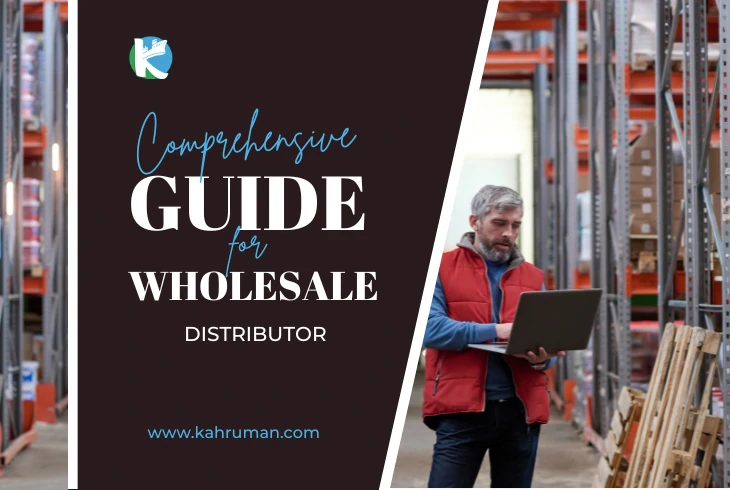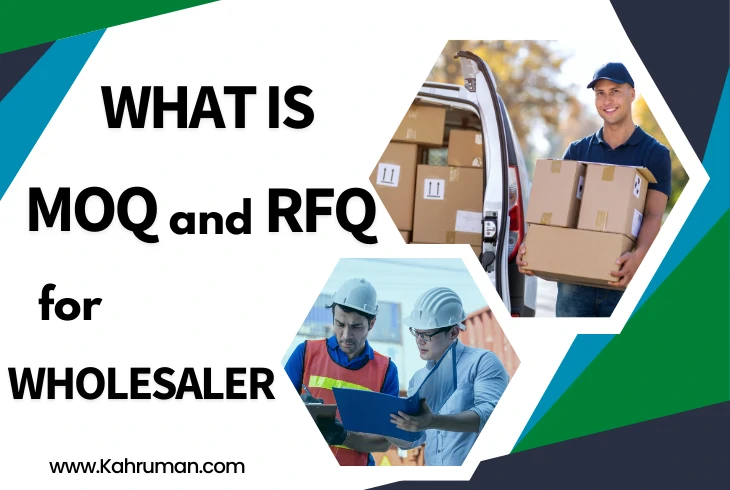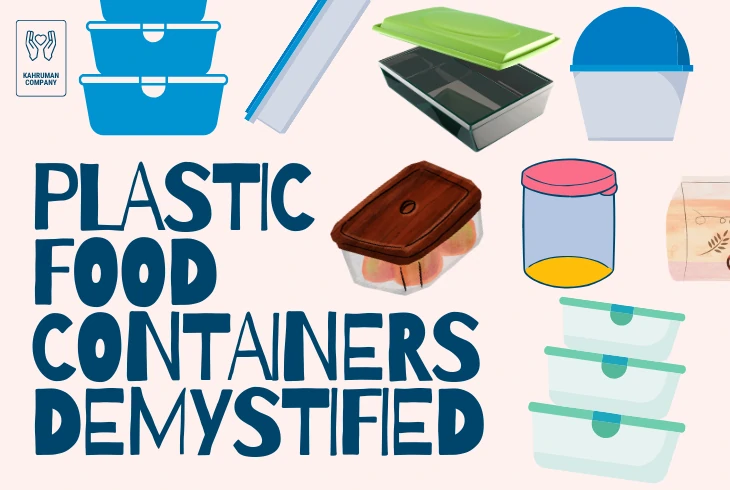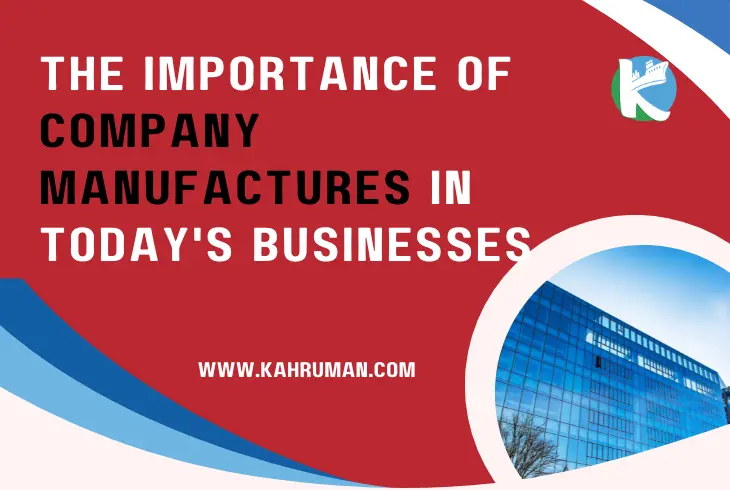What is a wholesale distributor?
A wholesale distributor is a business that purchases goods in large quantities from manufacturers, provider or other sources at a discounted price and then resells them in smaller amounts to retailers, resellers, or other companies. Wholesale distributors act as intermediaries between companies and end-users and play a crucial role in the distribution of goods.
The leading wholesale distributor helps to streamline the supply chain and ensure that wholesale products are available to consumers by purchasing products in bulk and then distributing them to businesses who sell them to end-users. Wholesale distributors typically specialize in a specific industry or product line and operate on a regional or national level. Overall, wholesale distributors are an essential part of the supply chain, helping to make products more widely available and accessible to consumers and stores.
What is the difference between a wholesale distributor and a Retailer?
The primary difference between a wholesale distributor and a retailer lies in their role in the supply chain.
A wholesale distributor purchases and supplies wholesale products in large quantities from manufacturers or other sources at a discounted price and then sells them in smaller quantities to retailers or other businesses.
On the other hand, retailers purchase wholesale products in smaller quantities from wholesalers or distributors at a higher price and sell them directly to end-users.
While wholesale distributors and retailers deal with products, they serve different purposes in the supply chain.
Wholesale distributors serve as intermediaries between producers and retailers, helping to streamline the distribution process and make products more widely available.
On the other hand, retailers serve as the final link in the supply chain, selling products directly to end-users.
Knowledge the Distribution Process: Wholesale vs. Retail
Understanding the distribution process is essential for any company selling wholesale products or services. The distribution method involves getting products from the manufacturer to the end user, and there are two primary channels for doing so: wholesale and retail. Wholesale distributors purchase products in large quantities from manufacturers or other sources at a discounted price and then sell them in smaller quantities to retailers or other businesses.
Retailers, in turn, purchase products in smaller quantities from wholesalers or distributors at a higher price and sell them directly to end-users. While both channels involve the movement of products, there are significant differences in how they operate, including pricing, order minimums, and the types of businesses they serve.
Kindly these differences is crucial for businesses looking to choose the right distribution channel for their products or services and to optimize their sales and profitability.
The Role of Wholesale Distributors in the Supply Chain
Wholesale distributors play a critical role in the supply chain, acting as intermediaries between manufacturers and retailers. They purchase products in large quantities from companies or other sources at a discounted price and then sell them in smaller quantities to retailers, grocery or other businesses.
This process helps to streamline the distribution process and make products more widely available to retailers and end-users. Wholesale distributors also provide services that help manufacturers and retailers manage their supply chains operations, such as inventory management, order fulfillment, and logistics.
They help to bridge the gap between supply and demand by managing the flow of wholesale products from manufacturers to retailers, ensuring that products are available when and where they are needed. Overall, wholesale distributors are essential partners in the supply chain, providing critical services that help businesses manage their inventory and ensure their products are available to customers.
The Role of Retailers in the Supply Chain
Retailers play a critical role in the supply chain, acting as the final link between wholesalers or distributors and end-users. They purchase products in smaller quantities from wholesale distributors at a higher price and sell them directly to consumers.
In doing so, they provide a range of services that help to make products more accessible and convenient for consumers, such as product displays, marketing, and customer service. Retailers play an essential role in managing product demand by working closely with wholesalers and distributors to forecast sales and manage inventory levels.
By doing so, they help to ensure that merchandise are available to consumers when and where they are needed. Overall, retailers are essential partners in the supply chain, providing critical services that help to make products more available and convenient for consumers.
How to become a wholesale distributor?
Becoming a wholesale distributor requires industry knowledge, business skills, and networking. To get started, it's essential to have a strong idea of the industry and the products you want to distribute.
This may involve conducting market research, attending trade shows, and networking with wholesale industry experts to learn more about the products of a company and their market demand. You'll need to develop strong business skills for shop, such as financial management, marketing, and logistics, to manage your operations and build a profitable business successfully.
Also, it's essential to make a strong network of contacts within the industry, including manufacturers, wholesalers, retailers, and other distributors, to source products and build links with potential customers.
Overall, becoming a successful wholesale distributor requires industry knowledge, business skills, and networking, and it can take time and effort to build a successful and profitable operation.
Can wholesale distributors buy directly from a Supplier?
Yes, wholesale distributors can buy directly from a supplier. Many wholesale distributors prefer to buy directly from suppliers to secure better pricing and more favorable terms. However, buying from a supplier requires a certain level of expertise and knowledge of the industry and a strong knowledge of the specific products and their market demand.
To buy directly from a supplier, a wholesale distributor will typically need a well-established business with a solid track record of sales and a robust financial standing. They may also need to meet specific minimum order quantities and other requirements set by the Supplier, such as maintaining a certain inventory level or adhering to particular shipping and delivery timelines.
Overall, buying directly from a supplier can be an effective way for wholesale distributors to secure better pricing and more favorable terms. Still, it requires significant expertise, knowledge, and resources to do so successfully.
Will wholesale distributors sell to the public? Can the public buy from wholesalers?
Generally, wholesale distributors do not sell to the public, as their business model focuses on supplying bulk products to other businesses, such as retailers or distributors. However, there are some exceptions to this rule.
In some instances, wholesalers may allow the public to purchase products directly from them, mainly if the products in question are surplus or overstocked items that they want to move quickly.
In addition, some wholesalers may operate a separate retail business alongside their wholesale operations, allowing them to sell directly to the public.
However, these cases are relatively rare, and most wholesalers will not sell to the public. Instead, they prefer to focus on serving other businesses looking to purchase products in public
What percentage do wholesalers take?
The percentage that wholesalers take can vary depending on several factors, such as the type of product being sold, the volume of the purchase, and the relationship between the wholesaler and the retailer or distributor.
Generally speaking, wholesale distributors will aim to profit from the products they sell, which means that they will typically mark up the price they pay to the wholesale manufacturer or Supplier. This markup can range from a few percentage points to several times the original cost, depending on the product and the market.
However, it's worth noting that wholesalers may offer discounts to retailers or distributors who purchase larger quantities or who have a long-standing relationship with the wholesaler. Ultimately, the percentage that wholesalers take will depend on various factors, and businesses must negotiate the best possible deal with their wholesalers to maximize their profit margins.
What is the difference between margin and markup?
Margin and markup are two important concepts in retail pricing, but they are often confused with each other. Margin refers to the difference between the cost of a product and its selling price, while markup is the percentage added to the cost to arrive at the selling price.
For example, let's say a wholesale store buys a box of candy for $10 and sells it for $15. The margin on the candy is $5 or 33.3% ([$15 - $10] / $15 = 0.33 or 33.3%). The markup on the candy is also 50% ([($15 - $10) / $10] x 100 = 50%).
It is important to note that margin and markup are not the same thing. Markup only considers the cost of the product, while margin takes into account other expenses such as overhead, rent, and employee wages. Therefore, the margin is a more accurate reflection of a store's profitability than the markup.
In the world of retail, there are many different types of stores, from independent, family-owned shops to huge eCommerce leaders. These stores sell everything from candy and cigars to hardware and tires. Some stores specialize in closeouts and liquidations, while others sell high-end custom art and department store items.
Regardless of the type of store, it is important to know the difference between margin and markup. This knowledge can help protect against dangerous situations like price gouging, where sellers take advantage of a person's lack of knowledge or a particular season to charge more for a product. It also helps in ensuring fair pricing, for example, if a local hardware store buys a battery for $10 and wants to make a 40% margin, they will sell the battery for $16.67, while another store buys the same battery for $8 but marks it up by 100% and sells it for $16, it can be a cause for concern.
Where does wholesale distributor buy their stock?
Wholesale distributors typically buy their stock from various sources, including manufacturers, importers, and other wholesalers. Many wholesalers source products from global suppliers, especially if they are looking for unique or niche items that are not readily available in their domestic market. For example, some wholesalers (wholesale distributors) may source products from Turkey, with a long history of producing high-quality textiles, ceramics, and other goods.
Turkish developments are increasingly popular among wholesalers and retailers worldwide, and many Turkish suppliers offer competitive prices and high-quality products. In addition to traditional sourcing methods, wholesale distributors can use online platforms like Kahruman to find and purchase stock.
Kahruman is a B2B platform that connects wholesalers with a wide range of suppliers worldwide, making it easy to find and buy products at competitive prices. By using a variety of sourcing methods, including global suppliers and online platforms like Kahruman, wholesale distributors can build a diverse inventory and stay competitive in a crowded marketplace.
Understanding the Stock Purchasing Process of Wholesale Distributors
Wholesale distributors typically purchase their stock from manufacturers or other sources in bulk quantities. This allows them to take advantage of discounted prices and economies of scale. Some wholesale distributors also purchase stock from global suppliers to expand their product offerings and meet the demands of their customers. For example, wholesale Turkish products have gained acceptance among wholesalers due to their unique designs and high-quality materials.
Wholesalers can also purchase stock from online platforms such as Kahruman, which offers various products from different manufacturers and suppliers. Wholesale distributors' purchasing process involves carefully considering factors such as price, quality, availability, and customer demand to ensure that they can provide their customers with the products they need at competitive prices.
Domestic vs. World Sourcing: What Wholesale Distributors Need to Know
When sourcing wholesale products for their inventory, wholesale distributors have two primary options: domestic or international. Domestic sourcing involves purchasing products from suppliers within their own country, while global sourcing involves buying products from suppliers in other countries.
One advantage of domestic sourcing is that it tends to be faster and more reliable. Wholesale distributors don't have to worry about shipping times, customs clearance, or language barriers that can sometimes arise when dealing with international suppliers. Additionally, working with domestic suppliers can result in stronger affairs and better connection due to shared cultural and linguistic Furthermore
On the other hand, world sourcing can offer a broader range of products and potentially lower costs due to lower labor and production costs in certain countries. For example, Turkey is a popular destination for wholesale distributors seeking high-quality, affordable textiles and home goods. Online platforms like Kahruman can help connect wholesale distributors with international suppliers and make the purchasing process smoother.
Ultimately, wholesale distributors need to weigh the pros and cons of domestic vs. International sourcing based on their specific business needs and priorities. While both options have advantages and challenges, finding the right mix of domestic and international suppliers can help wholesale distributors build a strong and competitive inventory.
The Pros and Cons of Buying from Manufacturers vs. Distributors
When purchasing goods for a wholesale distribution business, there are two primary options: buying directly from manufacturers or purchasing from distributors. Each option has its own set of pros and cons to consider.
Buying from manufacturers can be beneficial in terms of price, as manufacturers often offer discounted rates for bulk orders. Additionally, buying directly from producers can give wholesalers more control over the quality of the products they are purchasing. However, this option may require more time and resources to source and manage relationships with multiple manufacturers.
On the other hand, purchasing from wholesale distributors can provide convenience and efficiency in the purchasing process, as distributors handle the sourcing and logistics of the products. This can save wholesalers time and resources to find and manage relationships with multiple manufacturers. However, purchasing from distributors may come at a higher cost, as distributors mark up the prices of products.
Ultimately, the decision between buying from manufacturers or wholesale distributors depends on various factors, including the desired level of control over product quality, the number of resources available for sourcing, and the overall cost-benefit analysis for the business.
Strategies for Reducing Costs When Purchasing Stock
As a wholesale distributor, there are several strategies you can employ to reduce your costs when purchasing stock. Here are some techniques you can use:
Negotiate with suppliers:
Negotiating with suppliers to get the best possible price is one of the most effective ways to reduce costs. Establish a long-term relationship with your suppliers and negotiate for better pricing based on the volume of products you purchase.
Consolidate orders:
Consolidating your orders can help you save money on shipping and handling costs. Try to place larger orders with fewer suppliers to take advantage of bulk discounts. Look for discounts and promotions: Keep an eye out for discounts and promotions offered by suppliers. Some suppliers offer discounts based on the number of products you purchase or may have periodic promotions to help you save money.
Use technology:
Utilize technology to streamline your purchasing process and reduce your costs. Consider using an inventory management system to track your stock levels and automate your purchasing process. This can help you avoid overstocking and minimize the time and money spent on manual purchasing tasks.
Consider alternative sourcing options:
Consider alternative sourcing options, such as buying directly from manufacturers or exploring international suppliers. These options may offer lower prices but may require additional research and due diligence to ensure quality and reliability.
By implementing these techniques, you can reduce your costs when purchasing stock and improve the profitability of your wholesale distribution industry.
The Importance of Building Strong Relationships with Suppliers
Building solid relationships with suppliers is crucial for the success of wholesale distributors. By fostering strong connections with suppliers, distributors can ensure a reliable and consistent supply of high-quality products at competitive prices. One technique for building strong supplier links is to communicate frequently and openly about needs, expectations, and concerns.
Distributors can also offer prompt payment and a consistent volume of purchases to show their commitment to the partnership. Another technique is working collaboratively with suppliers to find solutions to problems and frequently improving the quality and value of the products being sourced. By building solid links with suppliers, wholesale distributors can reduce costs, improve efficiency, and gain a competitive advantage.
How Technology is Transforming the Stock Purchasing Process for Wholesale Distributors?
Technology is transforming the stock purchasing process for wholesale distributors in several ways.
Automation and AI-powered systems make it easier to manage inventory levels, track orders, and streamline the procurement process. This helps reduce the risk of stock shortages or overstock and enables distributors to make more informed decisions about when and how much stock to order.
Digital platforms such as e-commerce websites and online marketplaces enable wholesale distributors to source products from a broader range of domestic and international suppliers. This has the potential to reduce costs and increase product variety.
The use of data analytics is helping distributors to identify trends in consumer demand and optimize their purchasing decisions accordingly.
Overall, technology enables wholesale distributors to be more efficient, responsive, and competitive in an increasingly complex and fast-paced marketplace.
How do I find Supplier to buy Wholesale products?
Here are some techniques to help you find a supplier to buy wholesale products:
Utilize online directories and marketplaces:
Online directories and marketplaces such as Alibaba, ThomasNet, and Kahruman store can be great resources for finding domestic and global suppliers. These platforms often have search filters that allow you to narrow down your search by location, product category, and other criteria.
Attend trade shows and events:
Attending trade shows and events can be a great way to connect with potential suppliers face-to-face. Look for events in your industry or product category, and bring business cards and a clear idea of what you are looking for.
Ask for referrals:
Ask other businesses in your industry if they can recommend any reliable suppliers. Referrals can be a great way to find trustworthy suppliers and get valuable insights into their experiences.
Contact producers directly: If you have a specific product in mind, you can contact the manufacturer directly and ask if they sell Wholesale or if they can recommend a distributor.
Use social media:
Social media platforms such as LinkedIn and Twitter can help find potential suppliers and contact them. You can join industry-specific groups and forums to connect with other businesses and share information.
Whatever technique you choose, it is essential to research and carefully vet potential suppliers to ensure they meet your needs and standards. Consider factors such as pricing, product quality, delivery times, and customer service when deciding.
Best practices for choosing a Supplier/distributor
Choosing the right Supplier or distributor is crucial for the success of a wholesale business. Here are some best practices considering:
Conduct thorough research:
Before choosing a supplier, conduct thorough research on their background, reputation, and track record. Look for customer reviews on wholesale, ratings, and testimonials to get an idea of their level of service and sureness.
Evaluate the quality of their products:
The quality of the wholesale products you sell can impact your business's reputation, so choosing a supplier that offers high-quality products is essential.
Check their pricing and terms:
Compare the pricing and terms of different suppliers to ensure you're getting a fair deal. Look for hidden costs, such as shipping fees in dollar or minimum order requirements that could affect your bottom line.
Consider their location:
Choosing a wholesale supplier close to your business can reduce shipping costs and delivery times. However, pay attention to international wholesale suppliers if they offer better pricing or unique products.
Connection and responsiveness:
Look for responsive suppliers who communicate clearly and promptly. Responsive suppliers can help prevent misunderstandings and ensure that orders are fulfilled correctly and on time.
Explore their technology and digital capabilities:
Look for wholesale suppliers who have invested in technology to streamline their operations, such as online ordering platforms or automated inventory management systems.
By following these best practices, wholesale distributors can choose the right Supplier and build a strong relationship that benefits both parties.
Why should I choose Turkish Suppliers?
There are several reasons why choosing Turkish products can benefit wholesale distributors.
Turkey is well-known for its high-quality products, extremely in textiles, furniture, and electronics. Turkey can give wholesale distributors a competitive edge by offering unique, high-quality products to their customers.
Wholesale Turkish products are competitively priced, making them an attractive option for cost-conscious distributors. Furthermore, Turkey's location at the crossroads of Europe and Asia makes it a strategic Country for importing and exporting goods, providing access to a wide range of markets.
Turkey has a vital producing base, with many factories and suppliers capable of quickly and efficiently producing large quantities of goods quickly and efficiently.
Overall, choosing Turkish products can offer a combination of quality, affordability, and accessibility for wholesale distributors.
Difference between Turkish Products and Chines Products
When choosing wholesale products for a wholesale distribution business, there are many factors to consider, including cost, quality, and opportunity. Two familiar sources of products are Turkey and China. While both countries offer a wide range of categories of products at competitive prices, some notable differences exist.
Firstly, Turkish products are known for their high quality, especially in the textiles, wholesale food and electronics industries.
Turkey has a long history of skilled artisans and manufacturers, and its government has invested in modernizing and improving its initiatives. On the other hand, while China is known for its fabrication prowess and low costs, the quality of Chinese products could be consistent. Low prices are partly due to China's wide range of suppliers and manufacturers, some of whom prioritize quantity over quality.
Another difference between Turkish and Chinese products is their cultural appeal. Turkish products have a unique and distinctive designs, drawing on traditional motifs and styles. These designs can make them attractive to consumers who appreciate cultural validity and skill. In contrast, Chinese products are seen as more utilitarian and mass-produced.
Finally, there are logistical thoughts to keep in mind. Turkey is located closer to Europe, which can make it easier and faster to ship wholesale products to European markets. However, China has a more extensive and established producing and shipping infrastructure, making it easier to find suppliers and arrange large shipments and packaging.
Ultimately, the choice between Turkish and Chinese products will depend on the needs and priorities of each business. While Turkish wholesale products may offer higher quality and cultural appeal, Chinese wholesale products may provide lower costs and logistical advantages.
Who is the largest wholesale Platform?
Alibaba and Kahruman are two of the largest wholesale platforms in the world, but they differ seriously in their focus and approach. Alibaba primarily focuses on Chinese products and has a vast network of suppliers from China and other Asian countries. It offers a wide range of wholesale products, including: electronics, apparel, home goods, and machinery, and has a strong reputation for competitive wholesale pricing.
On the other hand, Kahruman is a certified Turkish platform specializing in wholesale Turkish products for wholesale distributors, such as textiles, food, industrial, equipment products, and home goods. It provides a more localized and personalized approach to wholesale sourcing, focusing on building affairs between buyers and wholesale suppliers. While Alibaba has a more extensive global reach, Kahruman's emphasis on quality and reliability in Turkish products has helped it gain a loyal following in the European and Middle Eastern markets.
Ultimately, choosing these two platforms will depend on a buyer's specific needs and priorities. reputation for competitive pricing. On the other hand, Kahruman is a certified wholesale Turkish platform specializing in Turkish products, such as textiles, food, industrial, equipment products, and home goods.
It provides a more localized and personalized approach to wholesale sourcing, focusing on building affairs between buyers and wholesale suppliers. While Alibaba has a more extensive global reach, Kahruman's emphasis on quality and reliability in wholesale Turkish products has helped it gain a loyal following in the European and Middle Eastern markets. Ultimately, choosing these two platforms will depend on a buyer's specific needs and priorities.











